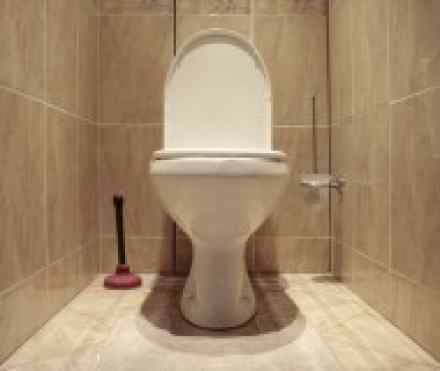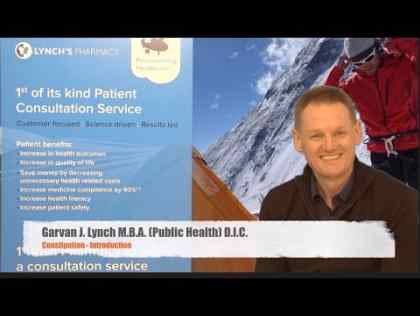
What is it?
- Constipation is a common gastrointestinal problem. People who experience constipation have infrequent bowel movements, pass hard stools or strain during bowel movements.
- What's considered normal frequency for bowel movements varies widely. In general, however, you're probably experiencing constipation if you pass fewer than three stools a week, and your stools are hard and dry.
- Fortunately, most cases of constipation are temporary. Simple lifestyle changes, such as getting more exercise and eating a high-fiber diet, can go a long way toward alleviating constipation. Constipation may also be treated with over-the-counter laxatives.
Symptoms
Not having a bowel movement every day doesn't necessarily mean you're constipated. You likely have constipation, however, if you experience two of the following signs or symptoms:
- Pass fewer than three stools a week
- Experience hard stools
- Strain excessively during bowel movements
- Experience a sense of rectal blockage
- Have a feeling of incomplete evacuation after having a bowel movement
- Need to use manual maneuvers to have a bowel movement, such as finger evacuation or manipulation of your lower abdomen
Causes
Gastrointestinal tractNormally, the waste products of digestion (stool) are propelled through your intestines by muscle contractions. In the large intestine (colon), most of the water and salt in this waste mixture are reabsorbed because they're essential for many of your body's functions.
However, when the colon absorbs too much water, or if the colon's muscle contractions are slow, the stool becomes hard and dry and passes through your colon too slowly. This is the root cause of constipation.
You may also experience constipation if the muscles you use to move your bowels aren't properly coordinated. This problem is called pelvic floor dysfunction (anismus), and it causes you to strain with most bowel movements — even soft ones.
A number of factors can cause an intestinal slowdown, including:
- Inadequate fluid intake, or dehydration
- Inadequate amounts of fiber in your diet
- Inattention to bowel habits or ignoring the urge to have a bowel movement
- Lack of physical activity (especially in older adults)
- Irritable bowel syndrome
- Changes in lifestyle or routine, including pregnancy, aging and travel
- Illness
- Frequent use or abuse of laxatives
- Specific diseases, such as stroke, diabetes, thyroid disease and Parkinson's disease
- Problems with the colon and rectum, such as intestinal obstruction or diverticulosis
- Certain medications, including pain medications, diuretics and those used to treat Parkinson's disease, high blood pressure and depression
- Hormonal disturbances, such as an underactive thyroid gland
- Anal fissures and hemorrhoids, which can produce a spasm of the anal sphincter muscle
- Loss of body salts through vomiting or diarrhea
- Injuries to the spinal cord, which can affect the nerves that lead to the intestine
In rare cases, constipation may signal more serious medical conditions, such as colorectal cancer, hormonal disturbances or autoimmune diseases. In children, constipation might indicate Hirschsprung disease, a congenital condition that results from missing nerve cells in the colon.
Children may also become constipated if they are afraid of or unwilling to use the toilet. Older children may ignore or forget to attend to bowel movements.
Risk factors
You're more likely to have constipation if you are:
- An older adult
- Sedentary
- Confined to bed
- Eating a diet that's low in fiber
- Not getting adequate fluids
- Taking certain medications, including sedatives, narcotics or certain medications to lower blood pressure
- Undergoing chemotherapy
Women are also more frequently affected by constipation than are men, and children more than adults.
If you're pregnant, you may have bouts of constipation because of hormonal changes. Later in your pregnancy, pressure on your intestines from your expanding uterus also can cause constipation.
Complications
Although constipation can be extremely bothersome, it usually isn't serious. If it persists, and especially if straining results, you may develop certain complications:
- Hemorrhoids or cracks (fissures) in your anus may result when hard stool stretches the sphincter muscle.
- Fecal impaction occurs when you accumulate a mass of hardened stool that can't be eliminated by a normal bowel movement. You may need to have impacted stool removed manually.
- Rectal prolapse occurs when a small amount of rectal tissue pushes out through the anus. This condition may lead to a secretion of mucus from the anus.
- Lazy bowel syndrome may occur if you use laxatives frequently, causing your bowels to become dependent on them for proper function. Laxative use can also lead to other problems, including poor absorption of vitamins and other nutrients and damage to your intestinal tract.
Diagnosis
Your doctor will take your medical history, perform a physical exam and ask about any prescription or over-the-counter medications you're taking. Your doctor will also want to rule out several conditions in diagnosing constipation. These include a blockage in your small intestine or colon (intestinal obstruction), a narrowing of the colon, an endocrine condition such as hypothyroidism, or an electrolyte disturbance, such as excessive calcium in the blood (hypercalcemia).
Extensive testing is usually reserved for people with severe symptoms. You may undergo these diagnostic procedures:
- Barium enema X-ray. In this test, the lining of your bowel is coated with a contrast dye (barium) so that your rectum, colon and sometimes a part of the small intestine can be clearly seen on an X-ray.
- Defecography. In this X-ray procedure, your doctor will fill your rectum with a soft paste with the same consistency as stool. As you expel the paste, X-rays are taken to evaluate the completeness of stool elimination and rectal muscle contractions.
- Sigmoidoscopy. In this procedure, your doctor inserts a lighted, flexible tube into your anus to examine your rectum and lower portion of your colon.
- Colonoscopy. This diagnostic procedure allows your doctor to examine the entire colon with a flexible, camera-equipped tube.
- Anorectal manometry. In this procedure, your doctor inserts a narrow, flexible tube into your anus and rectum, and then inflates a small balloon at the tip of the tube. The device is then pulled back through the sphincter muscle. This procedure allows your doctor to measure the coordination of the muscles you use to move your bowels.
- Marker studies or colorectal transit studies. In this procedure, you'll swallow a capsule containing markers that show up on X-rays taken over several days. Your doctor will look for signs of intestinal muscle dysfunction and how well food moves through the colon.
Treatments and drugs
In most cases, simple changes in your diet and lifestyle will help relieve symptoms and manage constipation. Consider one or more of the following:
A high-fiber diet. A diet with at least 20 to 35 grams of fiber each day helps your body form soft, bulky stool. High-fiber foods include beans, whole grains and fresh fruits and vegetables. Limit foods that have little to no fiber, such as cheese, meat and processed foods.
Regular exercise. Physical activity will help stimulate intestinal activity.
Adequate fluid intake. Drinking plenty of water and other fluids will help soften your stool.
Take the time for bowel movements. Set aside sufficient time to allow for undisturbed visits to the toilet. And don't ignore the urge to have a bowel movement.
Laxatives. These over-the-counter medications should be considered as a last resort because they can become habit-forming. There are several different types of laxatives:
- Stimulants cause rhythmic contractions in the intestines. Examples include Dulcolax and Senokot.
- Lubricants enable stool to move through your colon more easily. Examples include mineral oil and Fleet.
- Stool softeners moisten the stool and help prevent dehydration. Examples include Liquid Paraffin.
- Fiber supplements, or bulk laxatives, are generally considered the safest of laxatives. Examples include Psyllium Husk. These agents must be taken with plenty of water.
- Osmotics help fluids to move through the colon. Examples include Laxose and Movicol.
- Saline laxatives act like a sponge to draw water into the colon for easier passage of stool. Examples include milk of magnesia.
If an underlying disorder is causing your constipation, treatment will be aimed at the specific cause. If pelvic floor dysfunction is the cause of your constipation, your doctor may suggest biofeedback as a treatment. This retraining technique may help you learn to better coordinate the muscles you use to have a bowel movement.
If you're pregnant and have constipation, try eating lots of high-fiber foods, such as fruits, vegetables and whole grains. Drink plenty of fluids and get as much exercise as you can. Swimming and walking may be good choices.
If your constipation doesn't respond to changes in lifestyle or medical treatment, surgical removal of part of your colon may be recommended. In this procedure, the problem segment or segments of the anal sphincter or rectum are removed.
Above all, recognize that a successful treatment program can take time and effort.
Alternative medicine
In many cases, simple changes to your lifestyle and diet can help relieve the symptoms of constipation. Several alternative approaches may also provide relief, although they have not been studied extensively.
- Massage. Massage works by manipulating, compressing and stretching the skin, muscles and joints. Techniques include acupressure and shiatsu. When applied to the abdominal area, massage can help relax the muscles that support the bladder and intestines and help promote bowel activity.
- Acupuncture. This traditional Chinese medicine involves the insertion and manipulation of fine needles into various parts of the body. The therapy may help stimulate the colon and relieve pain from constipation, although its efficacy for this has not been proved.
- Homeopathic remedies. Homeopathy is a holistic, nontoxic system of medicine that's individualized to your symptoms. Numerous homeopathic remedies exist for constipation, and they typically consist of plant-based laxatives. A homeopathic doctor may prescribe the herb bryonia to treat hard stools, while recommending sulfur for stools that are painful and difficult to pass. If you have questions, discuss them with your doctor or pharmacist.
Prevention
To help prevent constipation:
- Eat a high-fiber diet. Choose lots of high-fiber foods, including fruits, vegetables, beans and whole-grain cereals and breads. Aim to consume 20 to 35 grams of fiber daily. Experiment to see if particular fruits or vegetables have a laxative effect for you. Remember to add fiber to your diet gradually to help reduce gas and bloating.
- Limit low-fiber foods. Foods that are high in fat and sugar and those that tend to be low in fiber content, such as ice cream, cheese and processed foods, may cause or aggravate constipation.
- Drink plenty of liquids. The exact amount of water and other fluids you should drink each day varies and depends on your age, sex, health, activity level and other factors. Limit caffeine intake, which can worsen symptoms of constipation by causing dehydration.
- Exercise regularly. Engage in regular physical exercise, such as walking, biking or swimming, to help stimulate intestinal function. Getting at least 30 minutes of exercise most days of the week is recommended.
- Heed nature's call. Don't ignore the urge to have a bowel movement. The longer you delay, the more water is absorbed from your stool and the harder it becomes.
- Try fiber supplements. Over-the-counter products such as Metamucil and Citrucel can help keep stools soft and regular. Be sure to drink plenty of water or other fluids every day, or taking fiber supplements may worsen constipation.
- Be careful about introducing stimulant laxatives. Habitual use of agents such as Correctol and Dulcolax can make your colon dependent on them and may require increasing dosages until your intestine ceases to function properly. For occasional relief try a saline laxative such as milk of magnesia, which draws water into the colon to lubricate the stool. Avoid giving children laxatives without a doctor's approval.
References:
http://www.emedicinehealth.com/constipation_in_adults/article_em.htm
http://www.medicinenet.com/constipation/article.htm
https://en.wikipedia.org/wiki/Constipation
https://www.hse.ie/eng/health/az/C/Constipation/
http://www.health.com/health/gallery/0,,20452199,00.html



